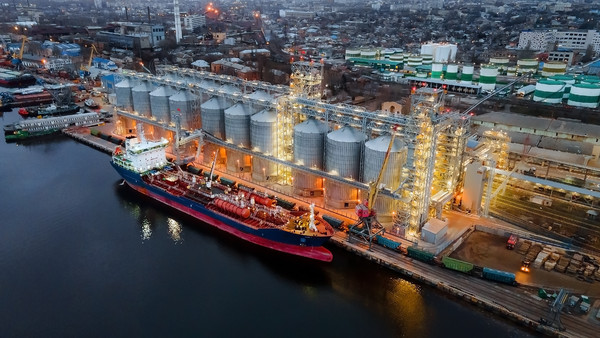The war in Ukraine has been ongoing for more than a year, and the consequences of such a conflict have strongly impacted the marine insurance community.
The most apparent effects that have been deeply analysed and commented on are for the hull war insurers and the cargo war insurers facing potential claims for the hulls and cargoes caught in the war for more than 12 months.
More than 40 vessels are still trapped with their cargoes on board, and whilst the grain corridor was a partial relief for many vessels able to sail and benefit from it, the effect of such an international agreement between Russian and Ukraine has not solved all the problems.
The reinsurance market has experienced a series of other types of loss in different risk areas linked to droughts or hurricanes, not to mention massive fires which occurred in various parts of the world. Therefore, it was not prepared to continue to provide the marine war business with the same protection as in previous years. Many of the direct marine insurers involved in war risks could not find the support of the traditional reinsurance stakeholders. The 1 January 2023 renewal was a real moment of truth for the marine insurance industry, now bound to consider and keep the marine war risks in its retention.
But is this really surprising? The war is still ongoing in Ukraine, and it appears relatively clear that risks for the shipping industry in the Black Sea are at a very high level with potential replication of a war-like situation on the vessels now involved in the grain corridor activity and more generally still navigating in other parts of the Black Sea.
War-like situations which fall under the marine war insurance contract could also impact other parts of the world. The rising geopolitical tensions in Southeast Asia could, under some extreme evolution, lead to sudden severe disruption and threats on shipowner activities, charterers’ commitment, or exporters through some form of blockade or detention linked to mounting military threats on land or the oceans.
Any belligerent powers who are now involved in a geopolitical tactic to weaken their competitor will use all possible means to reduce or paralyse shipping communication and international trade to support its adversaries.
The measures can be multiple, and war history is marked with blockades, seizures, and all associates’ decisions allowing them to send a clear warning to the world without entering into a real war.
Private merchants are the first to be exposed to such radical moves. The reinsurance industry has received the Ukrainian crisis as an essential reminder of this unfortunate but well know geopolitical evolution encompassing economic war and threats on shipping.
This is part of the hybrid war, now adding to usual disturbance means against potential enemies such as cyber-attacks and communication war.
The future is unstable, and some reinsurers are now clearly sending a message reducing the capacity they previously provided. Alternatively, they are asking for some radical changes from insurers on how they underwrite the business to mitigate their risks with the following:
- How many vessels and what values are loaded?
Risk management and information monitoring in real time about the location of vessels insured will now become a precedent condition to regain the reinsurer’s trust and demonstrate a clear business case showing knowledge and control of the ongoing risks, specifically when it comes to war.
This will require effort in data management and technologies to monitor those. Marine insurers can rely on IUMI’s forum to consider the market evolution on this issue and a way to promote the ability to adapt to these new requirements.
IUMI’s September conference will be an opportunity to analyse the new market evolutions and the potential solutions for such improvement.
Marine insurers have to demonstrate their potential strength to reduce and adapt to these new risks. They need to convince reinsurers who have decided to step away from the market facing a new war situation but who are always prepared to support risks carriers facing new challenges with efficiency and a clear target to balance the exposure to the common benefit.
The time has come to adapt to this new situation. Marine insurance markets have demonstrated their capacity to bounce back following market collapses; the coming time will not be an exception. Reinsurers will undoubtedly watch the evolution and regain confidence as long as the direct market shows its ability to face these challenges.
IUMI cares about these evolutions and echoes the return of experiences tackling these issues.
